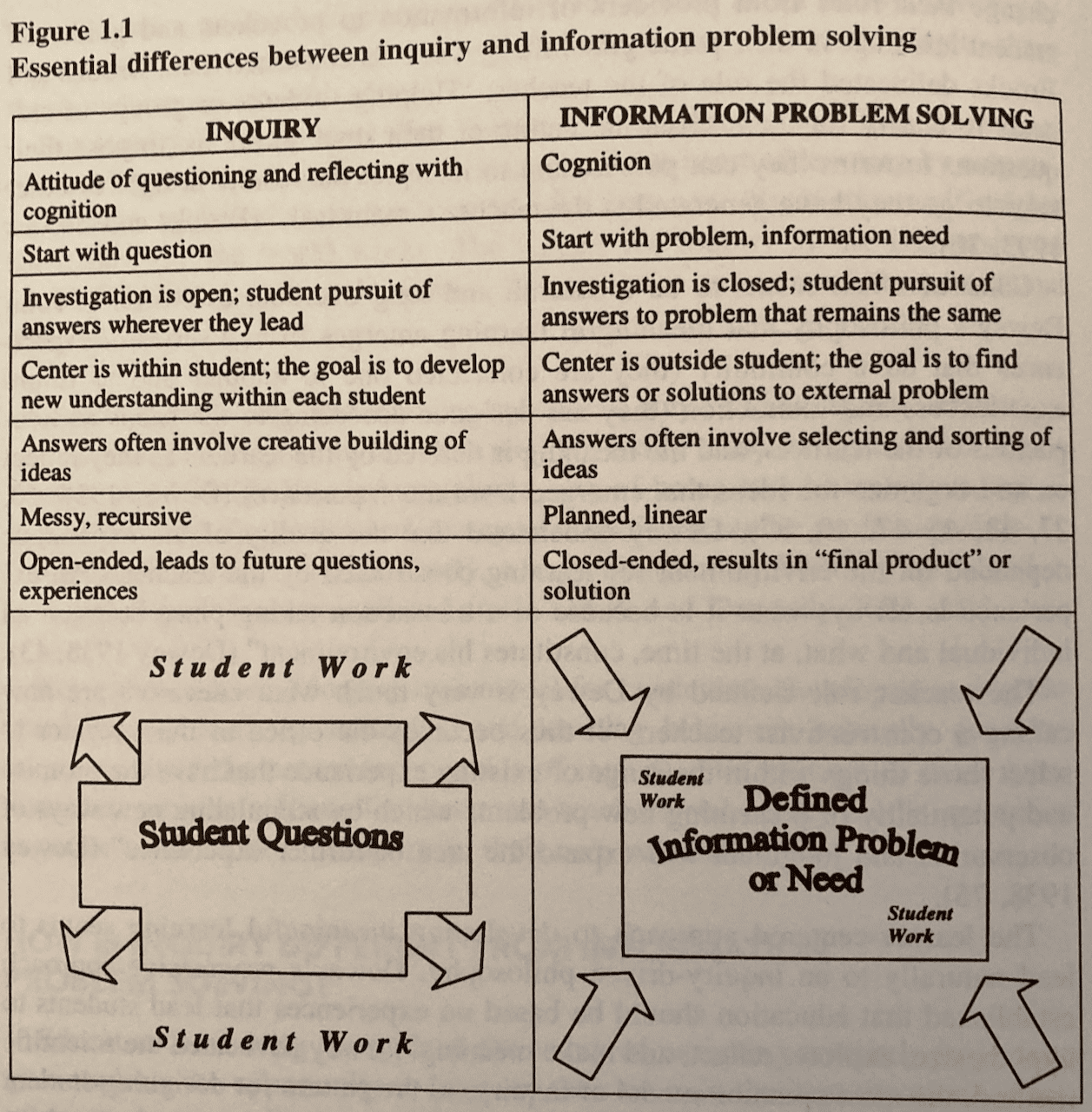Reply To: Session 3a: Ruth Maloney (Tonbridge Grammar School)
Home › Forums › FOSIL Presentations › 2025 FOSIL Symposium › Session 3a: Ruth Maloney (Tonbridge Grammar School) › Reply To: Session 3a: Ruth Maloney (Tonbridge Grammar School)
Thank you for posting this, Ruth, which appears to be an encouraging development, and I have taken the liberty of adding your image to your post for ease of reference.
This is one of the frustrations that I had with the IB Diploma Programe (IBDP), and then the Middle Years Programme (IBMYP), before we left Oakham.
As Anthony Tilke (2011, p. 5) points out, “inquiry, as a curriculum stance, pervades all [IB] Programmes,” so why not (1) use a robust model of the inquiry process, and then (2) locate the desired inquiry skills within the appropriate stages of the inquiry process? Which is what Barbara did, and on of the main reasons why based FOSIL on her models and framework of skills – this makes the world of difference to both teaching the skills and learning with the skills.
Moreover, as the IB (2019, p. 9) points, “Libraries are where most forms of inquiry, not just academic ones, begin…and the librarian is responsible for energizing and maintaining the inquiry process. Ideally, the librarian is trained in many ways of creating conditions for inquiry within and beyond the classroom … Inquiry is more expansive than research, and facilitating it requires expertise beyond research methods (Callison, 2015 and Levitov, 2016).” It is, in my opinion, confusing and unhelpful to make this distinction so clearly in one place, and then then to blur that distinction elsewhere.
What transformed the IBDP Extended Essay (EE) for us at Oakham, which we had 13 years of experience with, for both teachers and students, was viewing and approaching the EE as an inquiry process rather than a research process. The main difference was that we moved almost immediately from requiring students to start with questions, which they then narrowly attempted to answer, to students starting with a topic that they then investigated/ researched, in order to formulate a question that emerged from their investigation/ research and the evidence that they had uncovered.
I would not hesitate to use FOSIL (or any other legitimate model of the inquiry process), in place of the Big6 (or any other research/ information problem solving model), even if, as you rightly rightly point out, it gets things the wrong way round, because it is an opportunity that the IB has given you to actually do things the right way round. Perhaps broader change is possible, and an opportunity exists for a revolutionary school to take the lead in this.
The choice of the Big6 as an example is an interesting, because it is an information problem solving process rather than an inquiry process – Barbara addressed this distinction in How is Inquiry Different From Information Problem Solving, in her chapter on Inquiry-Based Learning, in Curriculum Connections Through the Library (2003, pp. 4-6).
The differences are summarised in the following table (p. 6) – note that the starting question in inquiry is not the same as the final/ formal question that emerges from the investigation:

Also, like most/ all information problem solving/ research process models, it appears that the Big6 is no longer being actively developed and supported, and is/ was proprietary. This reflects the broader shift from research process models to inquiry process models – see, for example, the first (2002) and second (2015) editions of the IFLA School Library Guidelines – and means that it is unlikely that schools adopting it will be part of a vital, supportive community of inquiry/ practice.
References
- IBO. (2019). Ideal libraries: A guide for schools. Cardiff: International Baccalaureate Organisation.
- Stripling, B. K., & Hughes-Hassell, S. (Eds.). (2003). Curriculum Connections Through the Library. Westport, CT: Libraries Unlimited.
- Tilke, A. (2011). The International Baccalaureate Diploma Program and the School Library: Inquiry-Based Education. Santa Barbara: Libraries Unlimited.


